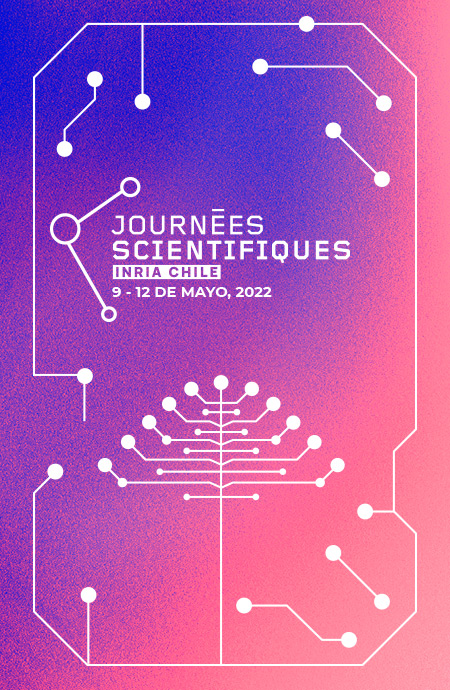

One of Inria's main objectives is to support digital transformation through research and innovation. In France and Chile, we work in an agile environment, based on international and interdisciplinary collaboration, promoting scientific excellence, development and innovation.
Permanently, it works together with academy and industry to face the challenges of digital transformation in science, society and the economy. Successful collaborations are those that produce innovation and achieve technology transfer. And the projects we work on are varied and follow Inria's six main lines of research: Artificial Intelligence, Internet of Things (IoT), Data Science, Interaction and Visualization, Modeling and Simulation, and Security and Confidentiality.
In this context, during the second day of the Journées Scientifiques Inria Chile 2022 we had a section dedicated especially to innovation, in particular to learn about successful collaborations that have already achieved transfer, such as FROST FORECAST, L.O.V.E. and ALPACS. In the session, the main collaborators of these initiatives presented their initiatives.
Firstly, Thomas Watteyne, research director and leader of the AIQ team at Inria, presented the FROST FORECAST project, the system for predicting anomalous climatic situations at the micro-farm level that allows farmers and agricultural technology providers to focus their efforts and reduce production losses due to frost.


Then, it was the turn of the software manager for the Telescope and Site Division, Vera C. Rubin Observatory, Andy Clements, who presented an important astronomical project: the L.O.V.E. Astronomy Case: LSST operator viewing environment, and explained why it was chose Chile for this job.


The last case of successful innovation presented was related to health: ALPACS: interoperable information repositories for data mining in the health industry. Mauricio Araya, assistant professor at the Federico Santa María Technical University, was the speaker at this presentation and stressed that successful scientific collaboration is based on that, on collaboration

